Surprise is harder to achieve when you do everything in the open. But working in the
open gives us the power to tell you why we're shipping what we're releasing today and how
this release is setting up GitLab for something even better in the future.
GitLab 9.4 lays the foundation of much that is to come, while still giving you some
new powers today. You can now formally relate issues
to each other, our out-of-the-box-magic monitoring now
collects many more metrics without any
configuration and we've quadrupled the things you can do with variables in CI.
On top of this, we're giving you an actual glimpse into the future with a opt-in
Beta of our new navigation. We hope that we can work with you to make it an
improvement everyone loves.
We are also thrilled to announce that we are shipping a GitLab PowerUp for Trello,
making it easy for you to integrate your Trello boards with GitLab! 🎉
Additionally, to empower our integrations set, we're keen to make your life easier with
our new Slack App for GitLab.com!
And if one glimpse doesn't suffice, we're aiming to
fully automate the configuration of your DevOps toolchain with the vision of Auto DevOps,
which will analyze your application and automatically configure your CI/CD pipeline to build, test, and deploy to Kubernetes.
To see where we’re heading, check out
our vision for Auto DevOps!
Join us for an upcoming event

Matt added support
for EC2 instance profile credentials when using AWS hosted elasticsearch clusters,
while we could only use static IAM credentials to access them before.
This is a complex contribution and a significant improvement to GitLab’s
integration with elasticsearch,
as it allows some aspects of our
Advanced Global Search
functionality to be automatically configured when GitLab is run on AWS.
Have we mentioned that Matt also worked on the
initial AWS implementation?
Yeah, he did! It’s all amazing, thank you Matt! 🙌
Key improvements released in GitLab 9.4
Related Issues
Whenever you share a link from one issue to another, GitLab shortens it and crosslinks it automatically.
But when issues get longer and projects more complex, it becomes hard to manage links and quickly find
related issues.
To solve this problem, we’re introducing Related issues. With Related issues, you can formally declare
another issue as related. A link to the other issue, its status and name will be shown in each issue.
Simply paste a link to the issue you want to link or search for it by typing # (as you were able to do already)
to link it. In the future, we will introduce different types of relationships through this mechanism.
To make it easier and faster to get around GitLab, we’re working on
updating our navigation. Because a new navigation can be a big disruption,
we’re releasing the first step as an opt-in configuration with GitLab 9.4.
To enable the new navigation, click on your profile image in the top right corner and
choose Turn on new navigation.
We have made adjustments to the global top navigation and introduced contextual navigation in the left
menu depending on what page you are currently viewing.
The new UI is still a work in progress and will replace the existing navigation
in the next few months, please see our blog post
about our process and what work still needs to be done.
We’d love to hear your feedback.
Web Application Monitoring
As part of GitLab 9.0 we launched system performance management
integrated with CI/CD deployments,
monitoring deployed applications
on Kubernetes by tracking CPU and Memory utilization. This was a great
first step, and with GitLab 9.4 we are excited to launch Web Application Monitoring with support beyond Kubernetes.
GitLab will now automatically detect key user experience indicators like throughput, error rate, and latency. Simply connect Prometheus to a
supported load balancer or HTTP server,
and it will identify and begin tracking these statistics.
Delivering a great experience is everyone’s responsibility, and GitLab is making this easier by closing the performance feedback loop in the tool developers use every day.
Group-level Secret Variables
Secret variables are really useful when you need a safe place to store
sensitive information. Until now, secret variables were stored at the project level.
However, we know its common for different projects
in the same group to share information on deployment or credentials for accessing external services.
Group-level Secret Variables remove the need to duplicate variables
from one project to the next: now you can enter these values once,
and each project or subgroup in the group will access them automatically.
It’s also really simple to update these values. You just change them
in one place and they’ll be automatically modified for all of the projects.
Variables in Pipeline Schedules
In GitLab 9.2 we introduced Pipeline Schedules
to automatically run pipelines at a specific interval of time, but most teams also want
to specify different values for specific variables when running the schedule.
In GitLab 9.4, we’ve added the ability to define variables when creating or modifying a pipeline schedule:
these values will be added to all the other variables already defined.
Using this feature, you can also redefine existing variables to have a different value only for that specific run,
for example if you want to have a “daily” pipeline running some tests in a different way.
Environment-specific Secret Variables
Variables are often the right solution to define values that are then used during deployments to specific environments.
Since different environments (e.g.: staging and production) may require different values for the same task,
such as the app name, it is important to create a direct binding between some variables and the related environment.
With GitLab 9.4, Environment-specific Variables are introduced to solve this issue, as developers can now define which environments
will receive a variable, even using wildcards to include dynamic environments, like `review/*.
It is now easy to deploy to different environments with a minimal effort!
GitLab Power-Up for Trello
Using both Trello and GitLab? Now you can make that experience even better with the new GitLab Power-Up!
In Trello, when viewing one of your boards, simply go to Power-Ups and scroll
to the GitLab Power-Up. After setup, you will be able to attach merge requests
to Trello cards.
In Trello, you will need to configure your domain, such as gitlab.com/api/v4 for GitLab.com,
and add your personal token.
GitLab Slack App for GitLab.com
🚀 GitLab already integrated deeply with Slack (and Mattermost, Microsoft Teams, and HipChat),
but we didn’t have an app in the Slack App Directory yet. Today we do 🎉! That means setting up
Slack integration with your projects on GitLab.com is now much easier.
You can set it up from your project settings in GitLab (Settings > Integrations). Soon
it will be available from the Slack App directory as well. We’re working together with
Slack on making sure private instances will
be able to use the same Slack App in the near future. Of course, private instances are able
to integrate with Slack using the manual steps outlined in the
documentation.
Other improvements in GitLab 9.4
Improved Internationalization
We are accelerating our efforts with Internationalization. A big thank you
to members of our community who are already contributing additional
languages including Chinese, French, Japanese and Brazillian Portuguese.
A huge thanks to Huang Tao for continuously
contributing to the cause!
In GitLab 9.4 we have added Internationalization support for the Commits page.
Group Milestones
Milestones are fundamental to issue tracking. They are often used to designate a sprint (week 35),
a release (9.4) or a category (Backlog) of issues and merge requests. Often milestones span
multiple projects: you were already able to quickly create milestones in multiple projects
at once in GitLab. To make this experience better, we’ve now added the ability to create Group milestones.
Group milestones behave exactly like their counterpart project milestones, but are created in
the group and from there available to all projects directly belonging to that project.
To create a group milestone, visit your group and go to Issues and then Milestones.
Additional GitLab Service Metrics
With GitLab 9.4 we have added additional instrumentation to our Ruby on Rails code,
providing insight into the HTTP requests, latency, and errors at the Rack middleware layer. We will continue to instrument additional areas of GitLab in subsequent releases.
GitLab Geo Improvements
Notable changes:
- GitLab Geo now supports PostgreSQL replication slots to prevent secondary Geo
nodes from getting out of sync with the primary. See
the documentation
for more details on how to use it the primary.
- We’ve increased the performance of replicating Git data by
adding more concurrent clone operations.
- Geo now ships with an initial version of an event log cursor that allows the
secondary track when it needs to update a Git repository. We’ll be deprecating the use of
Geo system hooks in the future.
Object Storage for CI Artifacts
As companies continue to embrace CI/CD across the organization, their
artifact storage needs naturally increase as well. With GitLab 9.4 you can move
existing CI artifacts
to Amazon S3, in order to free local space and enable
artifacts to be saved cost effectively, reliably, and with nearly infinite scalability.
For now this operation has to be run every time you want to move your local artifacts to S3,
but in a future iteration it will be automatically done so all the new artifacts will be saved
on object storage as soon as they’re created, without the need of a manual migration.
Extended Docker Configuration for CI/CD
In GitLab 9.4 we introduce new advanced configuration options for .gitlab-ci.yml that allow you more flexibility when defining Docker images
that you want to use for your pipelines. These improvements require also GitLab Runner 9.4 or above.
You can now specify a custom entrypoint for your Docker image, in order to override the default one: here is an example to set
the entrypoint to /bin/sh, making the image suitable for GitLab CI jobs without further modifications:
image:
name: super/sql:experimental
entrypoint: ["/bin/sh"]
You can also specify aliases for services to run multiple concurrent instances of the same Docker image, and specify commands directly in the configuration file.
services:
- name: super/sql:latest
command: ["/usr/bin/super-sql", "run"]
alias: super-sql-1
- name: super/sql:latest
alias: super-sql-2
Security - Add LDAP SSL Certificate Verification
We added support for certificate verification for LDAP over SSL. This option will
be disabled by default for backwards-compatibility until GitLab 10.0. Additionally,
to aid in configuring a secure connection, you can now specify a CA certificate file
and SSL version. Encryption method names ssl and tls have been deprecated in favor
or simple_tls and start_tls, respectively.
Omnibus Improvements
When using a container registry that is external to the Omnibus GitLab package,
there is additional configuration required starting with the 9.4.0 release.
Previously, only the path to the registry key used for communication between GitLab and the registry (gitlab_rails['registry_key_path']) was necessary.
Now along with the path, it is also required to specify the content of the key by setting
registry['internal_key'] inside of /etc/gitlab/gitlab.rb. Documentation for utilizing an external registry will be available soon.
Other changes:
- NGINX has been updated to the next stable version, 1.12.1
- openSUSE 42.2 is now officially supported
Unified Slack Interface
With this release, we are unifying the issue information shown in Slack in response to a link being pasted,
a Slack slash command
being executed, or a Slack notification.
This provides a coherent experience regardless of how an issue is referenced in Slack.
PostgreSQL High Availability (Beta)
GitLab 9.4 arrives in Beta for deploying the bundled PostgreSQL
server in a highly available manner, with a simple manual action to recover in the event
a node goes down. This allows for a more robust deployment of GitLab, reducing the duration
of an outage and potential for data loss. We are working to
automate the failover process in a subsequent release.
Mini-Graph for Multi-Project Pipelines
We recently introduced Multi-Project Pipeline Graphs to easily
follow dependencies between related projects.
With GitLab 9.4 we extend this also to mini-graphs in the Merge Request widget, where you can now see pipelines for downstream projects with their current status.
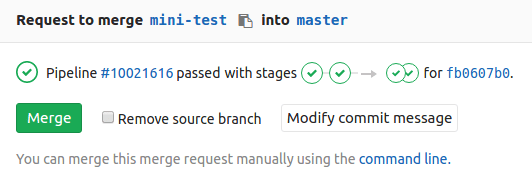
Customizable Path for CI/CD Configuration
GitLab defines CI/CD configuration in a YAML file named .gitlab-ci.yml
that is located in the root of the repository.
There are cases where you need to specify a different location for the
definition of your pipelines, for example when you
mirror a SVN repository and cannot have files in the root of the project.
Starting with GitLab 9.4, you can now specify in Settings > Pipelines a custom
path that will be used to read CI/CD configuration instead
of the default .gitlab-ci.yml. A variable named $CI_CONFIG_PATH is available to
jobs in order to access the current config location.
New Cache Policy for CI/CD Configuration
The default behaviour of a caching job is to download the files at the start
of execution, and to re-upload them at the end.
This allows any changes made by the job to be persisted for future runs,
and is known as the pull-push cache policy.
The default behaviour of a caching step is to restore and archive dependencies of your jobs, allowing speed-up of subsequent runs.
If any change is made to the cached content, it is pushed to the cache server by default, and this behavior is known as the pull-push cache policy.
If you’re not interested in updating the cached files for a specifig job, you can skip the upload step by setting policy: pull in the job specification.
Alternatively, if you have a job that unconditionally recreates the cache without reference to its previous contents, you can use policy: push
to save a lot of unnecessary load on the cache server. This feature requires GitLab Runner 9.4 or above.
Improved Prometheus Monitoring of Kubernetes Deployments
Since the release of GitLab 9.0, the Prometheus server bundled with Omnibus GitLab
has supported monitoring Kubernetes nodes for CPU and Memory metrics. With the release
of 9.4, the Prometheus server will also automatically monitor any
specifically annotated Pod metrics
as well.
Upcoming Omnibus Package Signing
Starting with our 9.5 release on August 22nd, we will be signing all
new packages going forward. Along with the 9.5.0 package, we will also be providing
signed versions of the latest 9.4 and 9.3 releases.
Package signing provides additional confidence that the .deb and .rpm files
used to install GitLab have not been surreptitiously modified.
GitLab Runner 9.4
We’re also releasing GitLab Runner 9.4 today!
Most interesting changes:
List of all changes can be found in GitLab Runner’s CHANGELOG.
Performance Improvements
We are continuing to make great strides improving
the performance of GitLab in every release. We’re committed to not only
making individual instances of GitLab even faster,
but also to greatly improving the performance of GitLab.com,
an instance that has over 1 million users!
In GitLab 9.4 we are shipping performance
improvements for issues, projects, milestones, and a lot more!
For a list of implementations, please check the merge requests for
GitLab Community Edition
and
GitLab Enterprise Edition.
Deprecations
openSUSE 42.1
As the openSUSE community has ended support for version 42.1,
GitLab has ended support as well as previously announced.
Please upgrade to OpenSUSE 42.2 which is officially supported.
Planned removal date:
July 22nd, 2017.
GitLab CI API v1, GitLab Runner 1.11.x
In 9.0 we released a new version of GitLab Runner that is based on the new API v4 instead of the old CI API v1. We are still supporting the old version of the API in GitLab, so users that are still using GitLab Runners 1.11.x can take their time for the migration process.
With GitLab 9.6, planned to be shipped on September 22nd, we are going to remove the old CI API from GitLab, making GitLab Runner 1.11.x unable to communicate with the system.
If you are using old GitLab Runner (<9.0), or any tools that are using GitLab CI API v1, an upgrade will be required.
Planned removal date:
September 22nd, 2017.
Removals and breaking changes
The complete list of all removed features can be viewed in the GitLab documentation. To be notified of upcoming breaking changes, subscribe to our Breaking Changes RSS feed.
Upgrade barometer
To upgrade to GitLab 9.4 from the latest 9.3 version,
no downtime is required. To upgrade without downtime,
please consult the documentation on downtimeless upgrades.
For this release we have migrations, post-deploy migrations,
and to help with the larger migrations we have introduced background migrations.
GitLab.com migrations took approximately 24 minutes and post-deploy
migrations amounted for a total of around 54 minutes.
Background migrations on the other hand are sidekiq jobs that will
run synchronously, for this release these migrations took around two
days to complete, no side effects were expected nor present, these
target older pipeline builds so newer executed pipelines are not affected.
GitLab Geo users, please consult the documentation on
upgrading Geo.
Changelog
Please check out the changelog to see all the named changes:
Installing
If you are setting up a new GitLab installation please see the
download GitLab page.
Updating
Check out our
update page.
Questions?
We'd love to hear your thoughts! Visit the
GitLab Forum
and let us know if you have questions about the release.
GitLab Subscription Plans
-
Free
Free-forever features for individual users
-
Premium
Enhance team productivity and coordination
-
Ultimate
Organization wide security, compliance, and planning
Try all GitLab features -
free for 30 days
Cover image
licensed under
CC0
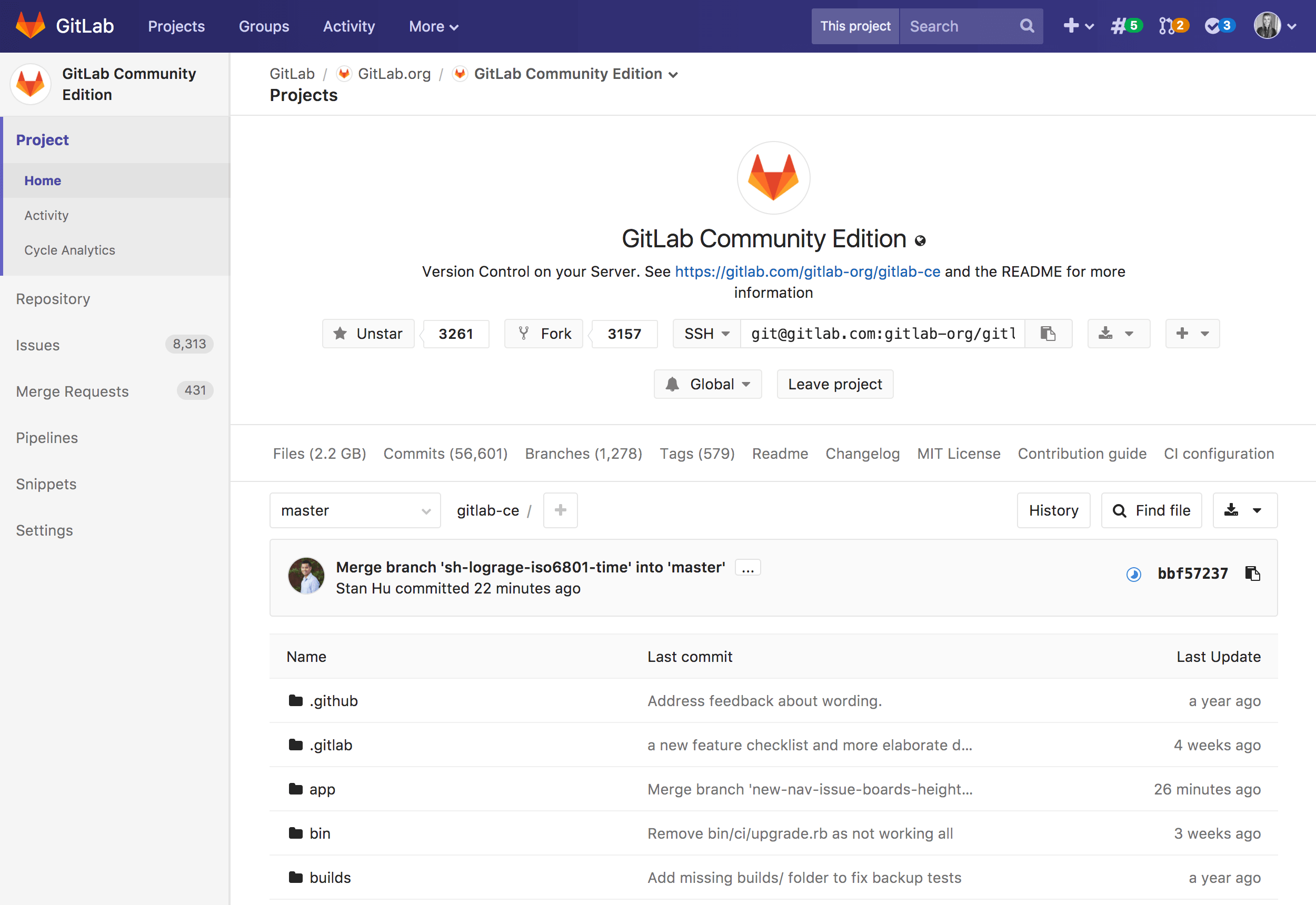
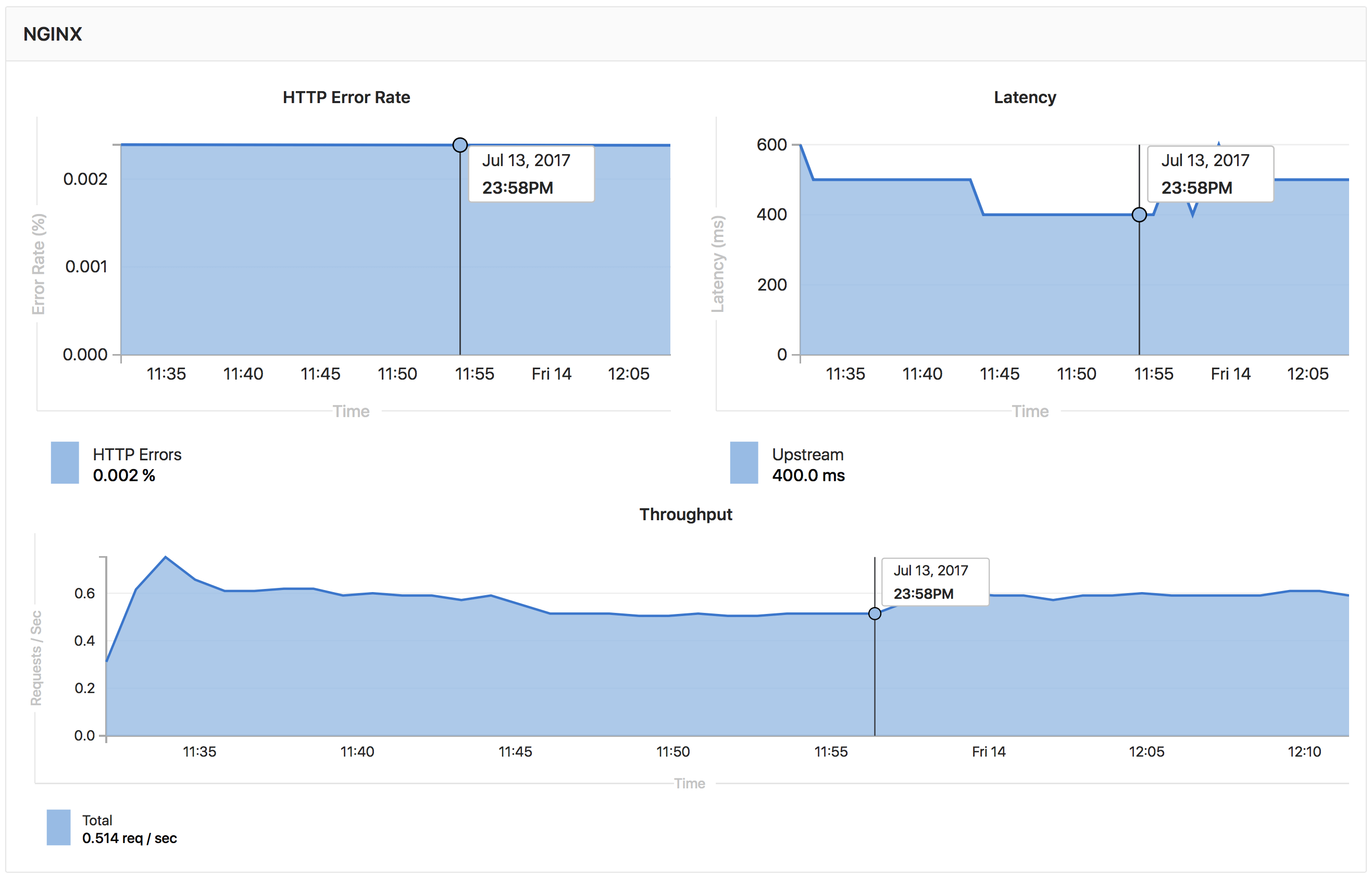
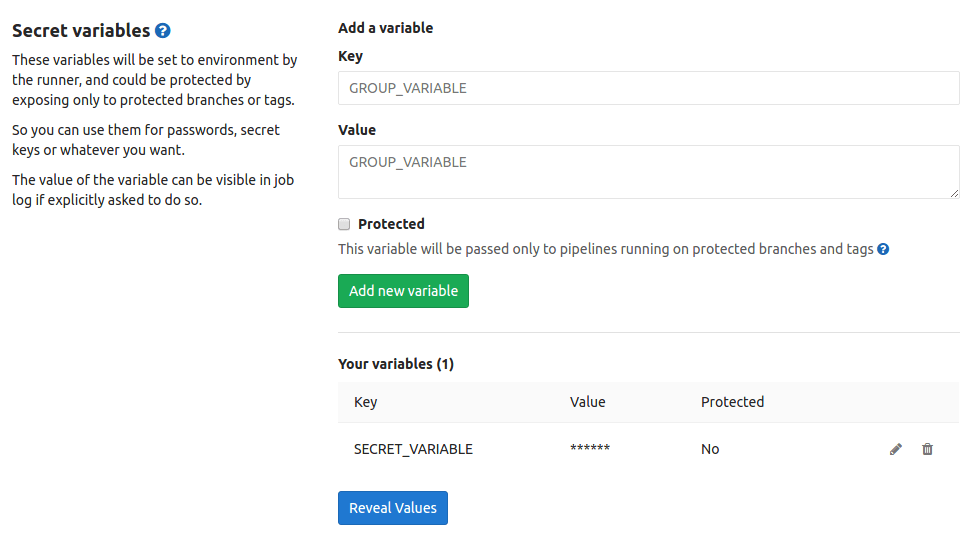
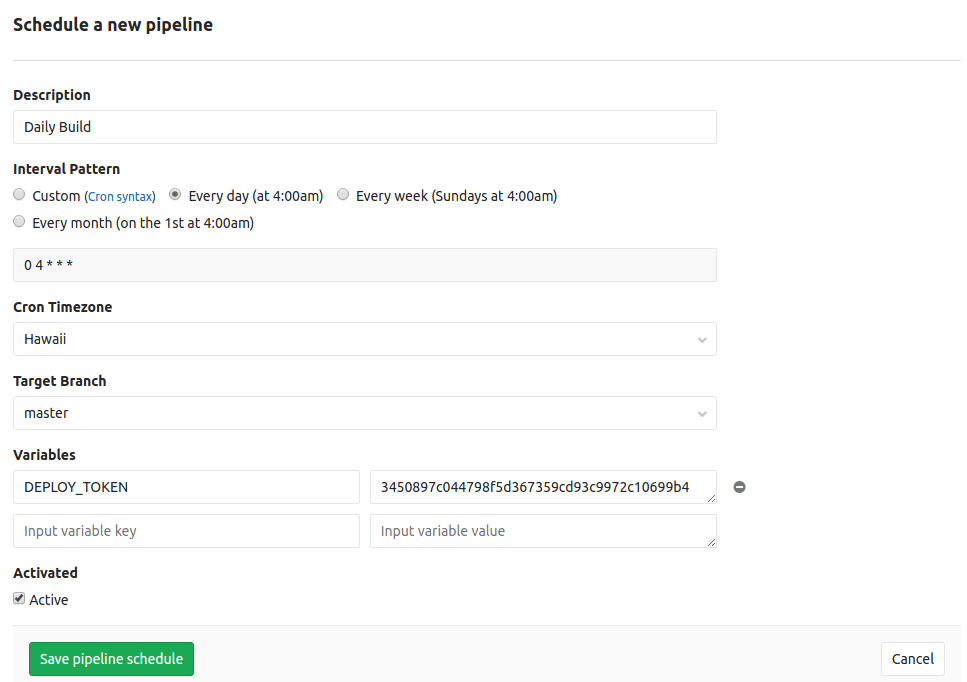
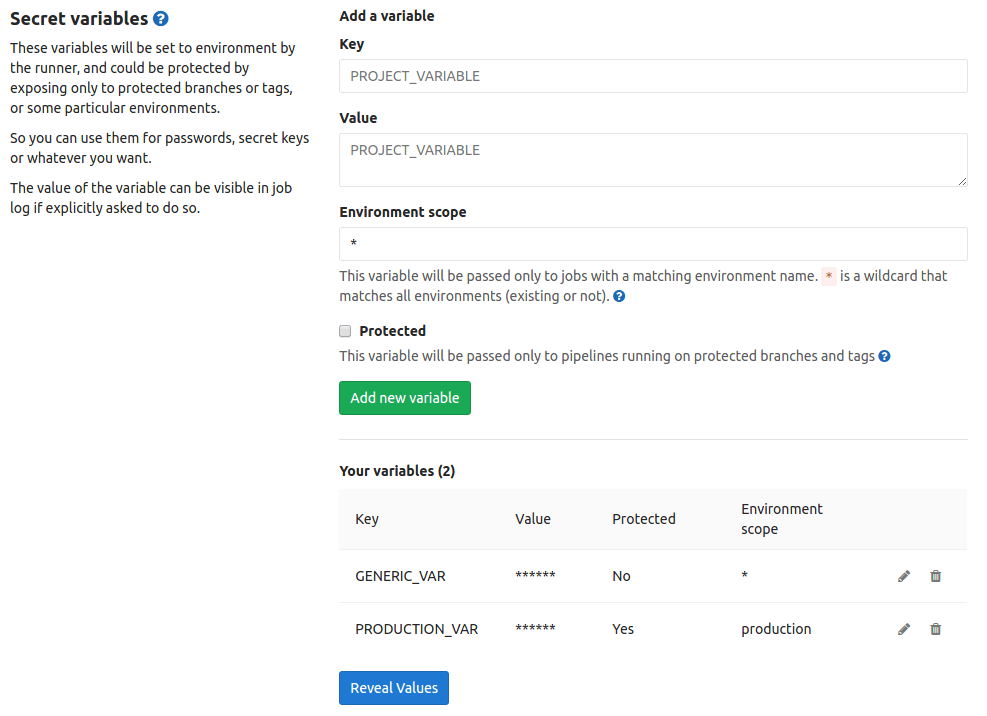

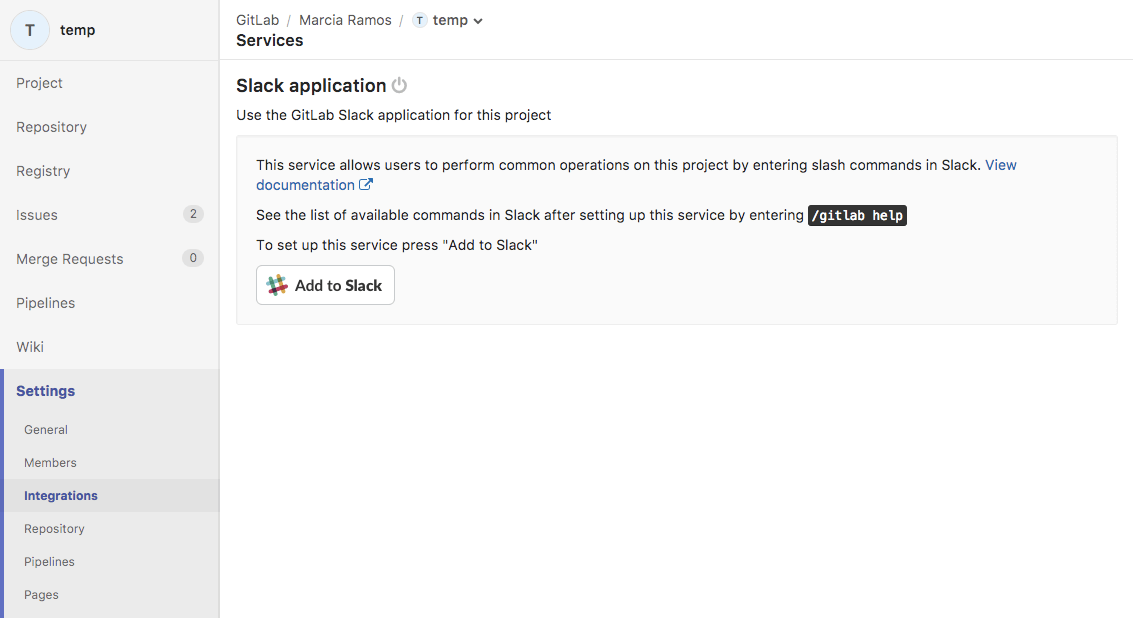




We want to hear from you
Enjoyed reading this blog post or have questions or feedback? Share your thoughts by creating a new topic in the GitLab community forum.
Share your feedback